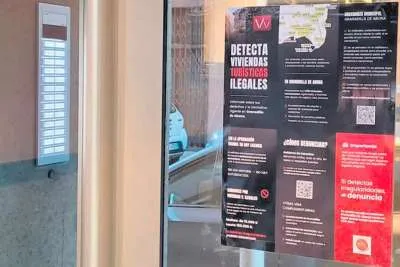24 arrested for scamming 350,000 euros from bank clients via fake websites
- 06-03-2023
- National
- National Police
The National Police have dismantled a criminal organisation, led by a male teenager under the age of 18, for allegedly defrauding more than 350,000 euros and obtaining details of 100,000 online banking customers throughout Spain.
The leader of the group has been placed in a juvenile detention centre, while another 24 people have been arrested in Cadiz, Malaga, and Barcelona, eight of whom have been jailed, according to a police press release.
The organisation was dedicated to committing computer scams using techniques known as 'phishing', 'smishing', and 'vishing', and the teenage gang leader is allegedly responsible for creating his own computer tools and software to carry out the scams, using fake bank websites or fraudulent links sent by SMS or email to the victims, and then sold them to other criminal organisations.
The network has allegedly swindled more than 350,000 euros from 200 people in just two months by impersonating 18 different banking institutions, and through telephone calls obtained the bank details, including, names, ID numbers, and passwords, of around 100,000 customers.
Six searches were carried out in which two fake firearms, 10,000 euros in cash, lists with the personal details of 100,000 bank customers, more than thirty state-of-the-art mobile phones, and 500 grams of marijuana buds, destined for drug trafficking, were seized.
The fraudsters had also designed software that allowed them to see in real-time the steps their victims were taking and, in order to restore the supposedly risky situation of their account and return to safe trading, they phoned them posing as employees of their bank and offered to help them fix the security breach.
To do so, they told them that they would receive verification codes on their mobile phone, which they had to provide over the phone. In reality, these codes made it possible for the fraudulent transactions that the criminals were carrying out in the victim's online banking system to materialise in real-time.
When the money entered the bank accounts controlled by the scammers, they immediately transferred it to other accounts, withdrew cash from ATMs, or used their bank details to take out instant personal loans.



























































